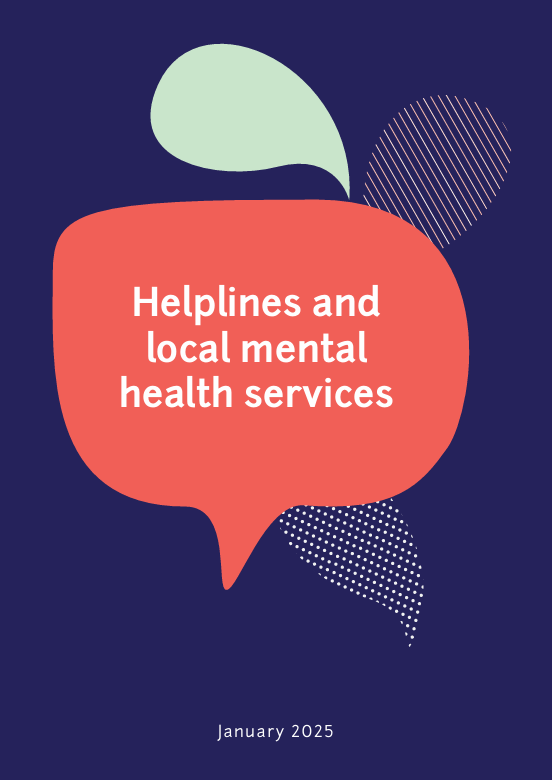You can now add Healthify as a preferred source on Google. Click here to see us when you search Google.
Severe depression
Key points about severe depression
- Sometimes depression can be severe, with your symptoms affecting your day-to-day life more than with mild or moderate depression.
- When your doctor assesses whether you are depressed, they will see if you meet the criteria for one of the different types of depression. They will assess how severe your symptoms are: mild, moderate or severe.
- If your symptoms are severe, it’s essential that you get help from your doctor and a psychological practitioner.
- There is hope – with the right treatment, many people recover well from severe depression and go on to lead happy and fulfilled lives.

Depression is very common and can affect anyone, at any age. About 1 in 6 people experience depression at some time in their life. It affects women more than men, but men seem less likely to seek help. Depression is a mental illness which affects your body too. It's not a sign of any kind of weakness or fault in you.
Symptoms include:
- constantly feeling down or hopeless
- loss of enjoyment or interest in doing the things you used to enjoy doing
- negative thinking
- sleep problems
- for some, feeling so bad that you have thoughts of hurting yourself or even suicide.
Sometimes depression can be severe, with your symptoms affecting your day-to-day life more than with mild or moderate depression. If your symptoms are severe, it’s essential that you get help from your doctor and a psychological practitioner. With the right treatment, many people recover well from severe depression and go on to lead happy and fulfilled lives.
Your doctor will be able to diagnose whether you have depression, and if so, what type of depression and whether your symptoms are severe. They will ask you questions about your thoughts, feelings and behaviour, including sleeping and eating patterns, as well as asking you how long you have been feeling this way. They will ask if you have had any previous episodes of depression and may ask about what is happening in your life at the moment. Your doctor may also do a physical examination and blood tests to rule out other causes for your depression.
There are 3 degrees of severity of major depression defined in the DSM-5:
Mild depression: Few, if any, symptoms in excess of the 5 required to make the diagnosis, and symptoms result in only minor functional impairment.
Moderate depression: Symptoms or functional impairment are between mild and severe.
Severe depression: Most symptoms, and the symptoms markedly interfere with functioning. Can occur with or without psychotic symptoms.
Medication
Your doctor will recommend medication called antidepressants. The goals of treatment is to reduce your symptoms of depression, to make a full recovery and to prevent the symptoms from recurring. Antidepressants work best when used together with psychological therapy and lifestyle changes.
There are various classes of antidepressants. The most commonly used antidepressants are selective serotonin re-uptake inhibitors (or SSRIs), such as citalopram, escitalopram, sertraline and fluoxetine. Most people will start noticing an improvement within 2 or 3 weeks but it will take 6 months or longer to get the full benefit.
If you have little improvement in your symptoms after about 3 weeks, your doctor may:
- change the dose
- try a different antidepressant (switching), such as mirtazapine, bupropion, tricyclic antidepressants, venlafaxine or monoamine-oxidase inhibitors, or inhibitors
- add a second medication (augmentation).
As many as 2 out of 3 people with severe depression will not respond to the initial antidepressant they were started on and will require a switch. Like all medicines, antidepressants cause side effects. Some side effects may wear off within a few days or weeks, but some can be ongoing and troublesome. If you experience side effects and find them troublesome, do not stop your medication. Instead talk to your doctor about switching to another antidepressant. It's normal to use antidepressants for many years if you have had many episodes of depression.
Your doctor will assess your symptoms regularly while you are taking medication and if after a few years you are coping well, they may consider gradually withdrawing medication. Coming off antidepressants should be done slowly to avoid withdrawal side effects. You are at increased risk of your symptoms coming back during the first 6 months after your medication has been stopped. If you feel unwell and that your symptoms seem to be recurring, talk to your doctor. You may need to restart your medication. You should also talk to your doctor if you become pregnant or plan to become pregnant. Read more about antidepressants.
If medication is not working well for you, or if your symptoms are quite complex, your doctor may also refer you to a psychiatrist. A psychiatrist is a medically trained specialist in mental health issues and medication for particular symptoms and conditions.
Psychotherapy
With severe depression, it’s important not to try and do it alone, but to get some form of face-to-face psychotherapy. Several kinds of therapy have been found to work well with depression – just make sure your therapist is trained, qualified and registered by a professional body.
People with moderate-to-severe depression who receive psychotherapy as well as taking antidepressants have been found to have fewer depressive symptoms and to be more often depression-free 6 months later compared with people who take antidepressants without having psychotherapy.
As well as helping with negative thinking, low feelings and dysfunctional behaviours, therapy can also address any underlying issues, such as past trauma or abuse, or other factors that may be contributing to your depression, such as substance abuse or other mental health conditions. You can ask your GP to recommend someone or find a counsellor(external link)(external link) yourself.
Electroconvulsive therapy (ECT)
If none of the above treatments is working for you, then you may be offered ECT. ECT is safe and effective treatment for more severe forms of depression. It is a procedure, done under general anaesthesia, in which small electric currents are passed through your brain, intentionally triggering a brief seizure. ECT seems to cause changes in your brain chemistry that can quickly reverse symptoms of certain mental illnesses, including depression.
There are strict criteria for use of ECT in New Zealand, but ECT achieves complete remission for 7 out of 10 people who have this treatment. There are strict criteria for prescribing ECT in New Zealand. They include:
- not improving after trying two different types of antidepressant medication
- side effects of antidepressant medication that make it unsuitable for you to continue
- your life is in danger because you are suicidal, your depression is chronic or because you have stopped eating or drinking
- you started to make an improvement with antidepressant medication or psychological therapies but did not continue to improve
- you have become very severely depressed after having a baby
- ECT has worked for you in the past.
There are side effects of ECT, in particular, memory loss, so even if you meet the criteria, it’s important to take time to talk any decision through with your doctor and get your questions answered before you go ahead with this treatment.
Hospitalisation
In rare cases, you may need to say in hospital for a while. This is usually only likely to happen if you are at high risk of risk of suicide, if you suffer from psychosis or if your depression is in the context of bipolar disorder.
Lifestyle changes
Even though it can be challenging to take good care of yourself when you are severely depressed, it’s important that you do what you can to improve your lifestyle. If you are struggling to do this for yourself, ask for help from friends or whānau members. They could motivate you to go for a walk by coming with you, or they could cook you a nutritious meal when you feel unable to. The following are the key areas to improve as much as you can.
Sleep
- Insomnia is closely associated with many mental illnesses, both as a symptom and a potential trigger.
- It co-occurs most commonly in major depression with around 80% of people diagnosed with depression experiencing insomnia.
Good sleep can improve your mood and also give you more resources for coping with life’s challenges. Find out about why sleep is important and check out these sleep tips or sleep apps. If you are still having problems with your sleep, talk to your doctor about it.
Physical activity
- People who are inactive are up to twice as likely to have depressive symptoms than active people. Even one hour of exercise a week has been found to prevent depression.
- Find out more about physical activity and mental health and the general benefits of being active.
Diet
What we put into our bodies effects not only our physical health but also our mental wellbeing. A direct link has been found between diet and depression. Find out about healthy eating basics to make sure your diet is providing you with the nutrients to help keep depression at bay.
Alcohol and other drugs
It’s important to avoid using alcohol and other drugs as these can often make depression worse. You may feel like they give you a lift in mood, but the overall effect is to make things worse. Read more about alcohol and mental health.
- Small steps are the key to change – choose what feels manageable and build from there.
- Making your own self-care matter builds your resilience so you can cope better with the challenges of life.
- Looking after your physical health helps your mental wellbeing.
- Having ways to reduce and manage stress increases your resilience.
- Getting help when you need it is a sign of strength not weakness.
- Staying connected to family, whānau and friends can help you feel better.
- Spending time in nature is key to your wellbeing.
- Finding a purpose increases your sense of meaning and belonging.
Also see Living well with depression.
Apps reviewed by Healthify
You may find it useful to look at some Depression apps and Mental health and wellbeing apps.
If you're distressed or finding it hard to cope there are many places to go to get help. You can talk to somebody at your medical centre or free phone or text 1737 any time of the day or night, or go to the 1737 digital hub(external link).
Find a mental health service within your area(external link).
Emergency helplines
Suicide crisis helpline(external link) 0508 828 865
Regional mental health crisis assessment teams – find the number to call in your region(external link)
Lifeline(external link) 0800 543 354 or text 4357
Alcohol drug helpline(external link) 0800 787 797 or text 868
Depression helpline(external link) 0800 111 757 or text 4202
Youthline(external link) 0800 376 633 or text 234 or email [email protected]
See also the support section on this page.
The following links provide further information about depression. Be aware that websites from other countries may have information that differs from NZ recommendations.
depression.org.nz(external link) Information, tests, tools, videos and more
Depression(external link) Mental Health Foundation, NZ
The lowdown – for young people(external link) NZ
Just a thought(external link) NZ
Depression explained(external link) Black Dog Institute, Australia
Find out how to tell if someone is struggling with their mental health(external link) BBC, UK, 2021
Small Steps(external link) Whether you’re looking to maintain wellbeing, find relief or get help, Small Steps can support you and your whānau with practical tools, strategies and advice.
Brochures
There is a way through – a guide for people experiencing stress, depression and anxiety(external link) Health Promotion Agency, NZ, 2025
Understanding depression(external link) depression.org.nz
Tihei mauri ora – supporting whānau through suicidal distress(external link) Ministry of Health and Mental Health Foundation, NZ, 2023
Having suicidal thoughts and finding a way back(external link) Ministry of Health and Mental Health Foundation, NZ, 2020
Helplines and local mental health services(external link) Mental Health Foundation, NZ, 2025
A guide to talking therapies in NZ [PDF, 564 KB] Te Pou, NZ, 2009
He rongoā kei te kōrero – talking therapies for Māori (external link)Te Pou, NZ, 2010
Talking therapies for Asian people [PDF, 3.1 MB] Te Pou NZ, 2010
Talking therapies for Pasifika peoples [PDF, 3.1 MB] Te Pou NZ, 2010
Apps/tools
Self-test depression (PHQ9)(external link)(external link)
Kessler scale
Depression apps
Mental health and wellbeing apps
References
- RANZCP clinical practice guidelines for mood disorders(external link) Royal Australian and New Zealand College of Psychiatrists, 2016
- Electroconvulsive therapy (ECT) in NZ(external link) Ministry of Health, NZ, 2009
- Psychological therapies for treatment-resistant depression in adults(external link) Cochrane Review, 2018
- Depression in adults – recognition and management(external link) NICE Guideline, UK, 2018
Brochures

Mental Health Foundation, NZ, 2022

Health Promotion Agency, NZ, 2025
Credits: Healthify editorial team. Healthify is brought to you by Health Navigator Charitable Trust.
Reviewed by: Dr Yoram Barak
Last reviewed:
Page last updated:





